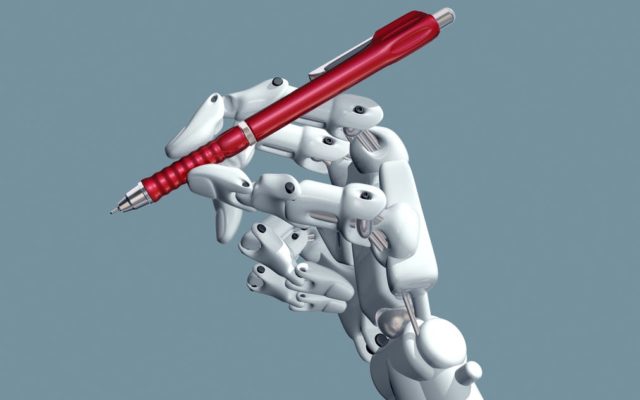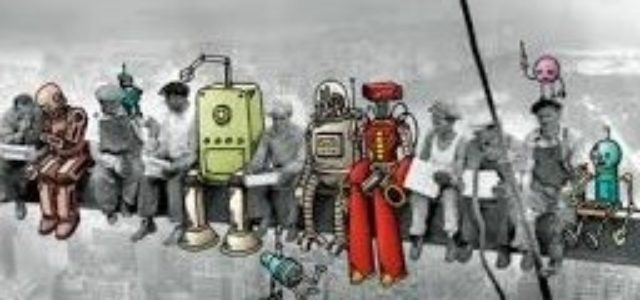Things are getting real now when it comes to deploying artificial intelligence (AI) in the workplace. But there is little doubt that the speed of its march is troubling some workers in the UK.
According to a survey released by think tank, Fountech.ai, two-thirds of adults (67 per cent) are worried AI will result in machines taking people’s jobs while one quarter (24 per cent) even think AI could be responsible for the end of humankind. On the flip side though the majority (62 per cent) reckon AI will do more good than harm in the world.
There is still a great deal of misinformation around AI and indeed Fountech highlights 37 per cent of people admit they do not fully understand what the term means.
Figures from the Office of National Statistics confirm that the UK’s labour productivity has slowed for the third consecutive quarter this year. The country’s so-called “productivity puzzle” is proving hard to crack but will it ultimately be AI that helps to solve it?
Research from the MAPI Foundation, a non-profit research organisation in the US, predicts that within the next five years, manufacturers will experience significant growth in AI through machine vision, intelligent products, machine learning, and cobots, both within factories and throughout the supply chain. The foundation projects this will lead to a myriad of new types of AI-related jobs in manufacturing.
The study also finds the introduction of AI into the manufacturing value chain is significantly changing the nature of that sector’s workforce. But rather than robots taking human jobs, new hybrid roles are emerging where “humans enable machines and AI augments human capabilities”.
More than 40 per cent of manufacturers have already created data scientists/data quality analysts in their workforces, and 35 per cent more expect to do so within the next five years, according to the research.
A sizable proportion of manufacturers are also creating machine learning engineers or specialists: (33 per today, 70 per cent predicted within five years); collaborative robotics specialists (29 per cent today, 27 per cent within five years); and data-quality analysts and AI solutions programmers/software designers (26 per cent, 40 per cent within five years).
“Manufacturing is already facing a worker shortage, and advanced technologies create additional technical and workforce challenges to find and retain talent with the necessary digital skills,” says Stephen Gold, president of the MAPI Foundation.
“Companies that acquire and cultivate new digital-related skills will have a distinct advantage as AI reshapes the industry, including identifying new roles for AI-focused jobs such as leading AI strategy and supervising implementations.”
Manufacturing should serve as an example to other industries of how leaders need to prepare for an AI-led future. I’m pleased to be sitting on the All-Parliamentary Party Group on Artificial Intelligence, which was set up with the aim of exploring the impact and implications of AI and leaders need to ask themselves and their organisations some searching questions when it comes to implementing digital technology.
Leadership on digital transformation and integrating technologies like AI must come from the very top and executive boards must consider extremely carefully what digital transformation and technologies like AI mean to an organisation.
They need to determine what is the optimum way digital technologies can transform the business? and how aligned is the board’s thinking when it comes to these new technologies?
Boards must also consider wider questions about identifying what the key investment priorities are in order to re-engineer the workforce and ensure it is fit for the digital future.
There are indeed more questions than answers when it comes to embedding AI in the workforce currently and it is high time leaders changed that and began finding the right solutions to them.
Article by channel:
Everything you need to know about Digital Transformation
The best articles, news and events direct to your inbox
Read more articles tagged: Featured, Future of Work, HR







